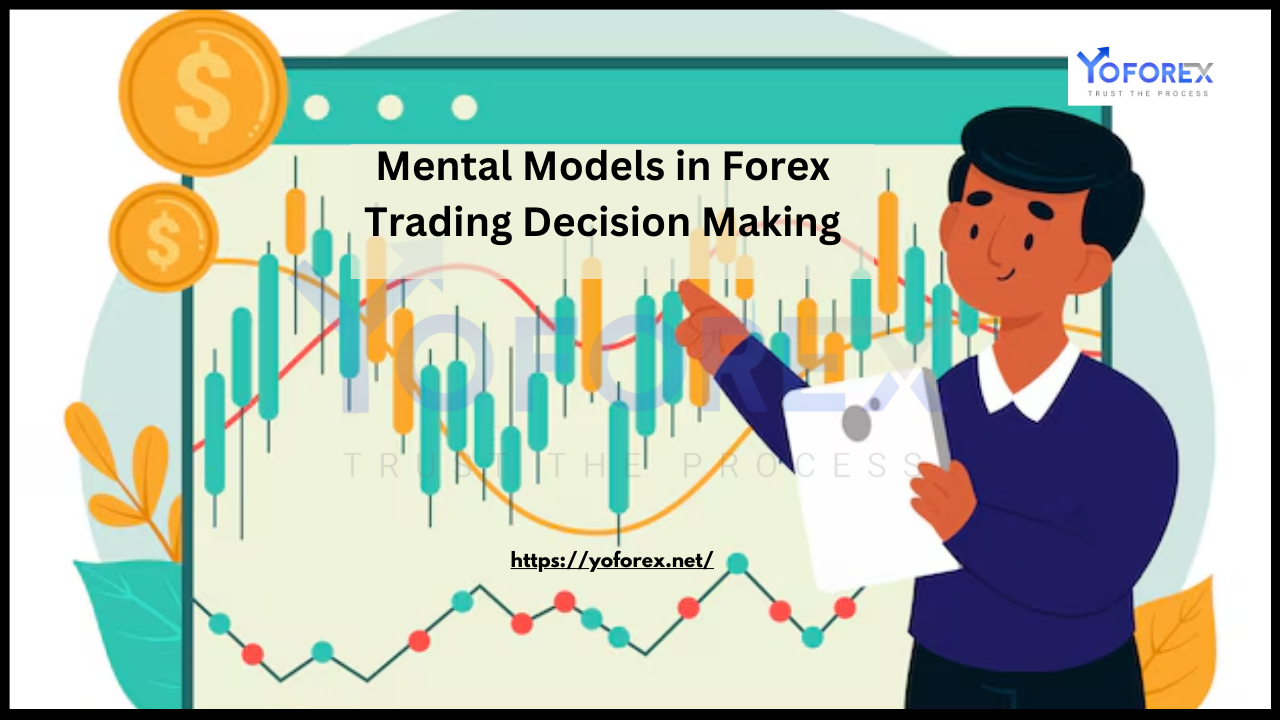Forex trading is more than just analyzing charts and executing trades—it is a psychological battlefield where mental clarity, strategic thinking, and decision-making skills determine success or failure. Traders who understand and apply mental models can make more informed decisions, avoid common biases, and improve their overall trading performance. In this article, we will explore some of the most effective mental models that can be applied to forex trading.
What Are Mental Models?
Mental models are frameworks that shape how we understand the world, interpret information, and make decisions. They help traders process complex market data, recognize patterns, and maintain discipline in their strategies. By leveraging the right mental models, traders can navigate the forex market with greater confidence and consistency.
Key Mental Models for Forex Trading
1. First Principles Thinking
First principles thinking involves breaking down complex problems into fundamental truths and then rebuilding them from the ground up. Instead of relying on assumptions or conventional wisdom, traders using this model analyze the core factors driving market movements.
Application in Forex:
- Instead of following common trading myths, dissect the market dynamics by analyzing supply and demand, interest rates, and macroeconomic factors.
- Question why a certain currency is strengthening or weakening instead of blindly following technical indicators.
2. Probabilistic Thinking
Markets are inherently uncertain, and every trade involves risk. Probabilistic thinking helps traders assess different possible outcomes rather than expecting certainty in their trades.
Application in Forex:
- Instead of assuming a trade will be a winner, estimate the probability of success and manage risk accordingly.
- Develop a risk-reward ratio and only take trades where the probability of profit outweighs the potential loss.
3. Opportunity Cost
Opportunity cost refers to the benefits lost when choosing one option over another. Every trading decision should be evaluated in terms of potential alternative opportunities.
Application in Forex:
- If a trade setup is not optimal, consider whether capital could be better used elsewhere.
- Avoid holding on to losing trades when better opportunities exist.
4. Confirmation Bias
Traders often seek information that confirms their existing beliefs while ignoring data that contradicts them. This cognitive bias can lead to poor decision-making.
Application in Forex:
- Regularly challenge your trading ideas by looking at opposing views or different indicators.
- Keep a trading journal to objectively review past trades and identify biases.

5. Second-Order Thinking
Second-order thinking involves looking beyond immediate outcomes and considering the long-term effects of decisions.
Application in Forex:
- Instead of focusing on short-term gains, consider how a trading strategy will perform over months or years.
- Assess how market news or central bank decisions will impact currency trends in the future rather than just reacting to headlines.
6. Lindy Effect
The Lindy Effect states that the longer something has been around, the more likely it is to persist in the future.
Application in Forex:
- Trust in time-tested strategies and indicators rather than chasing the latest trading fads.
- Analyze historical data to identify patterns that have consistently worked over decades.
7. Loss Aversion
Loss aversion is the tendency to fear losses more than value gains. Many traders hold onto losing trades too long in hopes of recovery while taking profits too early.
Application in Forex:
- Stick to stop-loss levels and exit strategies instead of emotionally holding on to bad trades.
- Let winning trades run when the trend is in your favor rather than closing out prematurely.
8. Survivorship Bias
Survivorship bias occurs when traders focus only on successful cases while ignoring failures.
Application in Forex:
- Don’t just study successful traders; also analyze those who failed and learn from their mistakes.
- Avoid assuming that every strategy that worked in the past will work in the future.
9. Sunk Cost Fallacy
Traders often make the mistake of holding onto losing trades because they have already invested time or money in them.
Application in Forex:
- A losing trade does not need to be “recovered” in the same currency pair; cut losses and move on.
- Base decisions on future potential rather than past investments.
10. Circle of Competence
The circle of competence model suggests that traders should focus on areas where they have deep knowledge and avoid areas they do not understand.
Application in Forex:
- Specialize in specific currency pairs rather than trading everything.
- Stick to strategies and indicators that align with your strengths and experience.
11. Recency Bias
Recency bias leads traders to give more weight to recent events while ignoring historical context.
Application in Forex:
- Avoid overreacting to short-term market moves; focus on longer-term trends and fundamentals.
- Don’t abandon a solid strategy due to a few losses; assess its performance over a longer period.
12. Mental Accounting
Mental accounting refers to treating money differently based on its source, which can lead to irrational decision-making.
Application in Forex:
- Treat all capital equally—whether it’s profit, initial investment, or bonus funds.
- Avoid risky trades just because you’re trading with “house money.”
13. Anchoring Bias
Anchoring bias occurs when traders fixate on specific price levels or historical data when making decisions.
Application in Forex:
- Avoid setting arbitrary price targets based on past highs or lows without considering current market conditions.
- Adjust strategies based on evolving market trends rather than sticking to fixed expectations.
Conclusion
Applying mental models in forex trading decision-making can significantly enhance a trader’s ability to analyze the market, manage risks, and execute trades effectively. By developing a disciplined mindset and incorporating these models into their trading routine, traders can minimize biases, make more rational decisions, and ultimately achieve long-term success in the forex market.
Stay Updated & Download: https://yoforex.net/mental-models-in-forex-trading-decision-making/
😎 Happy Trading 😎

